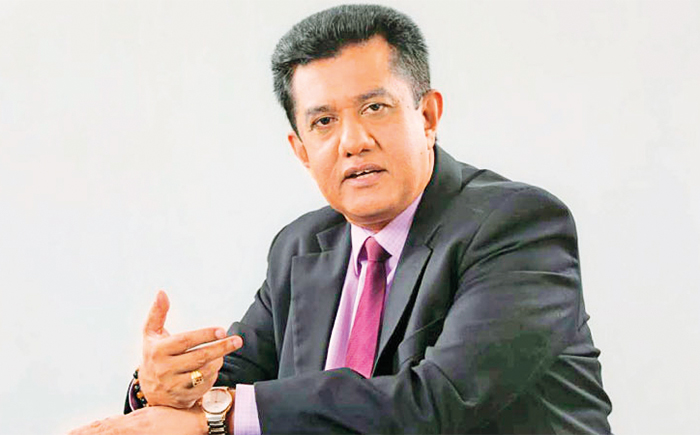News
Transformative impacts and benefits for beneficiaries observed through introduction of RETs

Japanese Ambassador and UNDP Resident Representative engage in observation visit of the Climate Promise renewable energy initiatives in the Northern and Eastern Provinces.
The adverse effects of climate change, coupled with the long-drawn impacts of the socio-economic crisis has had devastating effects on communities across Sri Lanka. The rural economy is reliant on natural resources, and has shown increasing frailty due to rampant inflation, increasing import prices, and the unpredictability of supply chains.
With increasing cost of living, energy sources continue to be unaffordable to many low-income households in rural Sri Lanka, prompting these families back into unsafe alternative energy options which cause indoor air pollution, premature deaths, and increase in acute and chronic diseases.
As part of the United Nations Development Programme (UNDP)’s Climate Promise initiative with funding from the Government of Japan through Japan Supplementary Budget (JSB) Phase 1, the project entitled ‘Enhancing Food and Energy Security through the Promotion of Renewable Energy for Wider Uptake among Vulnerable Smallholder Farmers in Sri Lanka’ was implemented in the North-Western and Eastern Provinces. In Phase 2, the ‘Enhancing Rural Resilience in Sri Lanka through Energy Efficiency & the Adoption of Renewable Energy for a Just Transition to Net-Zero Pathways’ project is being implemented in the Northern Province of Sri Lanka.
In a recent visit to the Northern and Eastern Provinces, Japanese Ambassador, Akio Isomata together with Resident Representative of UNDP in Sri Lanka, Azusa Kubota, engaged in an observation visit to selected project sites, along with key representatives from local governments including Nadaraja Thamilchelvan, Deputy Chief Secretary, Eastern Province; Dr. Raj Gnanasegar, Director-Planning, Eastern Province; and A. Umamaheshwaran, District Secretary, Mullaitivu District.
Commenting on the visits, Ambassador Isomata noted, “These projects are significant as they try to achieve human security of individuals as well as energy security of the society by meeting energy needs of the local communities through energy efficiency and renewable energy technology. Assistance to the Northern and Eastern Provinces continues to be important pillars of Japan’s development assistance to Sri Lanka. Japan is committed to working together with all stakeholders, also taking into account the recently-launched initiative of the new government ’Clean Sri Lanka.”
During the visit to the Eastern Province, the high-level delegation saw the direct impacts in locations including the District Agriculture Training Centre in Uppuweli, Trincomalee, which was supported with a 10kW solar PV system and supports nearly 10,000 individuals- playing a crucial role in equipping smallholder farmers, women, youth, and government officials with essential agricultural knowledge and skills with an annual saving of approximately 1,700 USD.
In the Northern Province, Ambassador Isomata and Kubota along with A. Umamaheshwaran, District Secretary, Mullaitivu District visited the beneficiaries with home gardens in Puthukkudiyiruppu. The delegation directly engaged and interacted with beneficiaries who have been supported through the introduction of Renewable Energy Technologies. 75 biogas units, 100 improved cookstoves and 102 Solar PV systems will be provided to the community under the project and were symbolically handed over to the community during the visit.
Highlighting UNDPs leadership through the initiative, Azusa Kubota Resident Representative, UNDP in Sri Lanka added, “For many families in this area, energy access is not just a challenge—it’s a barrier to opportunity. High energy costs limit the potential to thrive socially and economically. By providing solar, biogas, and improved cookstoves to the community through the UNDP Climate Promise Initiative, funded by the Government of Japan, we enhance livelihoods and narrow the energy divide for rural farming communities. We are grateful for the opportunities provided by the Government and People of Japan to bring new technologies to the communities.”
The completed JSB funded Phase 1 project supported the agricultural sector facing the shortage of power and energy, enhancing food and energy security through the utilization of renewable energy, with funding amounting to 1 million USD. The on-going JSB funded Phase 2 project has worked to strengthen the human and energy security of climate vulnerable communities, particularly women, youth and rural entrepreneurs, while accelerating the uptake of renewable energy technologies, for domestic, Micro, Small & Medium Enterprises (MSMEs) and public service energy requirements, setting a foundation for a just transition to net-zero pathways and sustainable development, with funding amounting to almost 328 thousand USD.
News
Royal Navy of Oman Ship ‘AL SEEB’ leaves island

The Royal Navy of Oman Ship ‘AL SEEB’ concluded a logistics replenishment visit to Sri Lanka and departed the Port of Colombo on 24 Jan 26.
In accordance with naval tradition, the Sri Lanka Navy extended a customary farewell to the departing ship.
Latest News
Gold tops $5,000 for first time ever, adding to historic rally

The price of gold has risen above $5,000 (£3,659) an ounce for the first time, extending a historic rally that saw the precious metal jump by more than 60% in 2025.
It comes as tensions between the US and NATO over Greenland have added to growing concerns about financial and geopolitical uncertainty.
US President Donald Trump’s trade policies have also worried markets. On Saturday he threatened to impose a 100% tariff on Canada if it strikes a trade deal with China.
Gold and other precious metals are seen as a so-called safe-haven assets that investors buy in times of uncertainty.
Demand for gold has also been driven by a range of other factors including higher-than-usual inflation, the weak US dollar, buying by central banks around the world and as the US Federal Reserve is expected to cut interest rates again this year.
Wars in Ukraine and Gaza, as well as Washington seizing Venezuelan President Nicolás Maduro, have also helped push up the price of gold.
On Friday, silver topped $100 an ounce for the first time, building on its almost 150% rise last year.
[BBC]
News
Auditor General issue acid test for newly constituted CC, says former COPE Chief

SJB Working Committee member and ex-SLPP lawmaker Charitha Herath says that all eyes are on the newly constituted Constitutional Council (CC) as to how it will handle the dispute between President Anura Kumara Dissanayake, and the previous CC, over the appointment of Auditor General (AG).
The former parliamentarian said so in response to The Island query yesterday (25). In terms of the Constitution, Prime Minister Dr. Harini Amarasuriya and Opposition Leader Sajith Premadasa last week agreed on the appointment of former civil servant Austin Fernando, Professor Wasantha Seneviratne and Ranjith Ariyaratne as non-MP members of the CC.
They replaced former Ministry Secretary Dr. Prathap Ramanujam, former Chairperson of the Sri Lanka Medical Association Dr. Dilkushi Anula Wijesundere and Dr. Dinesha Samararatne of the University of Colombo. Pointing out that they rejected the President’s nominees for the AG’s post on several occasions, Herath emphasised the pivotal importance of the appointment of a person with impeccable credentials.
The other CC members are the Prime Minister, Speaker Dr. Jagath Wickremaratne (Chairman), the Opposition Leader, the President’s nominee Bimal Rathnayake and five persons appointed by the President, upon being nominated as follows: one MP nominated by agreement of the majority of the MPs representing the Government (Aboobucker Athambawa, MP), one MP nominated by agreement of the majority of the Members of Parliament of the political party, or independent group, to which the Leader of the Opposition belongs (Ajith P. Perera, MP), and one MP nominated by agreement of the Members of Parliament other than those representing the Government and those belonging to the political party or independent group to which the Leader of the Opposition belongs, and appointed by the President ( Sivagnanam Shritharan, MP.)
The present CC was established on October 31, 2022 in terms of the 21st Amendment to the Constitution. The Attorney General heads the National Audit Office (NAO). One-time COPE Chief said that it would be the responsibility of the government to ensure the integrity of the NAO.
Chulantha Wickramaratne, who served as AG for a period of six years, retired in April 2025. Following his retirement, President Dissanayake nominated H.T.P. Chandana, an audit officer at the Ceylon Petroleum Corporation as the AG. The CC rejected that nomination. Subsequently, President Dissanayake appointed the next senior-most official at the NAO Dharmapala Gammanpila as Acting Auditor General for a period of six months. Then, the President nominated Senior Deputy Auditor General L.S.I. Jayarathne to serve in an acting capacity, but her nomination, too, was also rejected. Many an eyebrow was raised when the President nominated O.R. Rajasinghe, the Internal Audit Director of the Sri Lanka Army for the top post. That nomination too was rejected. As a result, the vital position remains vacant since 07 December, 2025.
Herath said that the government was in a bind over the Auditor General’s appointment and the disgraceful campaign launched against Attorney General Parinda Ranasinghe, Jr, PC.
The ex-lawmaker said that JVP/NPP loyalists masquerading as journalists and civil activists had launched the protest against the Attorney General. Herath said that the decision to send Deputy Secretary General of Parliament Chaminda Kularatne, on compulsory leave, too, was a matter of serious concern.
Herath said: “This is the same government that campaigned strongly on non-interference, institutional independence, and respect for the rule of law—principles they used to criticise every previous administration. Now, they appear to be doing exactly what they once opposed, only more openly. If this pattern continues, these undemocratic actions will eventually lead to their own downfall.”
BASL in late December, 2025 urged President Dissanayake and others, including the Opposition Leader, to consult civil society and professional bodies, including them, before the appointment of civil society representatives.
Herath said that the newly constituted CC would face its first acid test when it addressed the Auditor General issue.
by Shamindra Ferdinando
-

 Business21 hours ago
Business21 hours agoComBank, UnionPay launch SplendorPlus Card for travelers to China
-

 Business2 days ago
Business2 days agoComBank advances ForwardTogether agenda with event on sustainable business transformation
-

 Opinion7 days ago
Opinion7 days agoAmerican rulers’ hatred for Venezuela and its leaders
-

 Opinion5 days ago
Opinion5 days agoRemembering Cedric, who helped neutralise LTTE terrorism
-

 Business5 days ago
Business5 days agoCORALL Conservation Trust Fund – a historic first for SL
-

 Opinion4 days ago
Opinion4 days agoA puppet show?
-

 Opinion2 days ago
Opinion2 days agoConference “Microfinance and Credit Regulatory Authority Bill: Neither Here, Nor There”
-

 Opinion7 days ago
Opinion7 days agoHistory of St. Sebastian’s National Shrine Kandana













